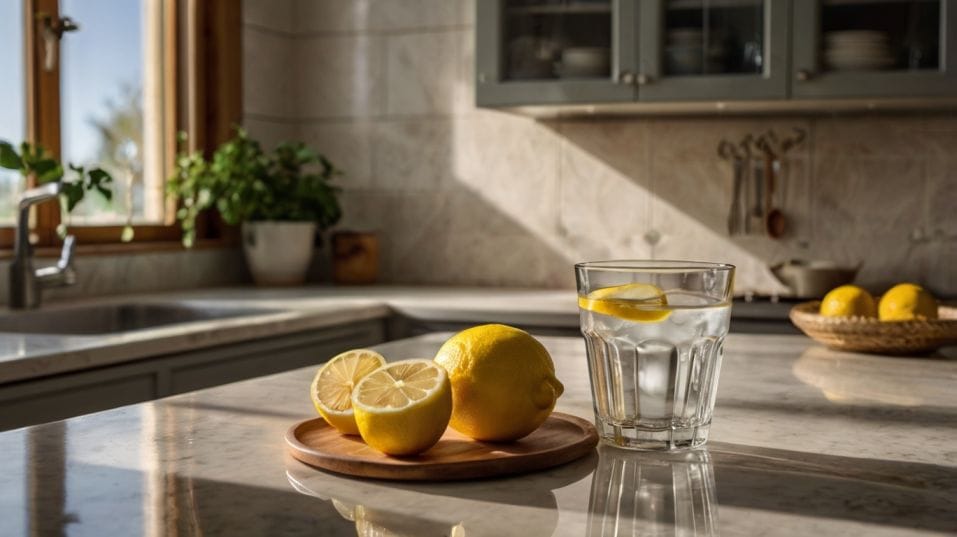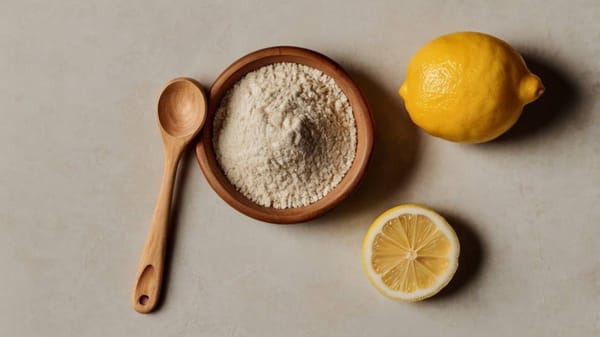A Beginner-Friendly Gut Routine That’s Easy to Stick To
Build a gut-friendly routine that’s easy to follow, supports digestion, and helps you feel lighter, more regular, and more energized every day.

Ever feel like your gut just doesn’t sync with your day—some mornings it’s quiet, other times it’s chaos? You try to eat well and drink water, but something’s still off.
The truth is, your gut runs on rhythm. And when that rhythm is missing, everything feels harder—digestion, energy, focus.
But fixing it doesn’t mean a full reset. A simple, structured routine—done daily—can shift everything. Here’s how to make it stick without overthinking it.
Why Your Gut Needs Structure to Thrive
Your digestive system isn’t passive. It runs on timing, signals, and patterns. Disrupt those rhythms with erratic meals, poor sleep, or stress, and your gut reacts—often loudly.
You feel it through bloating, inconsistent bathroom habits, low energy, or that heavy feeling that just won’t go away.
But structure doesn’t mean restriction. You’re not locking yourself into some rigid protocol. You’re giving your body cues it can rely on—so your gut doesn’t have to play catch-up all day.

Mornings Matter: Prime Your Gut Early
Before you even think about breakfast, give your gut a gentle wake-up call.
Warm water + sea salt or lemon: First thing after waking, drink a glass of warm (not cold) water with a pinch of sea salt or a squeeze of lemon.
This hydrates your system, stimulates digestive juices, and triggers that first wave of movement through your intestines.
Light movement to get things going: Even a short stretch, 10 pushups, or a five-minute walk around the house can help. Movement encourages your gut to start its day instead of staying stuck in sleep mode.
This combo tells your body, “It’s time to move things along.” You’ll notice smoother mornings, less bloating, and more regularity just from this small shift.
Eat in a Way Your Gut Recognizes
You don’t need to count macros or avoid entire food groups. But your gut loves food that’s simple, recognizable, and spaced consistently.
– Prioritize whole foods. Think cooked vegetables, lightly fermented foods (like sauerkraut or kefir), quality proteins, and healthy fats. These are easier to digest and support a more diverse microbiome.
– Chew slower than you think you need to. Digestion starts in your mouth. Chewing properly breaks down food before it hits your stomach and reduces that “heavy” feeling after meals.
– Eat on a schedule. Try to keep your meals within a consistent window each day. Your gut’s internal clock (yes, it has one) functions better with predictable timing.
Skip the snacking spiral. Constant grazing can confuse your digestion and keep your gut from ever fully resting. Stick to clear meals and let your system reset in between.
A Simple Supplement Stack That Actually Helps
You don’t need a cabinet full of powders and pills. Just a few targeted supplements—taken consistently—can do a lot for your gut, especially if your digestion feels off or unpredictable.
Here’s a sample routine:
– Probiotic (first thing in the morning): Choose a shelf-stable option with a mix of strains. This helps rebalance your gut bacteria and improve regularity.
– L-Glutamine (on an empty stomach): A key amino acid that supports the gut lining. Especially helpful if you deal with bloat, food sensitivities, or general discomfort.
– Digestive enzymes (with your largest meal): These break down food more effectively so your gut doesn’t have to work overtime. Think of them as training wheels for smoother digestion.
Stick to this stack daily for at least two weeks before expecting major changes. Your gut likes consistency over intensity.
Space Out Your Hydration for Better Results
Water is essential—but how and when you drink it matters just as much.
Instead of chugging water during meals (which can dilute stomach acid and make digestion harder), aim to hydrate between meals. Keep a bottle with you and sip consistently throughout the day.
Pro tip: Add a pinch of electrolytes or a squeeze of citrus to your midday water to help with absorption and avoid the “I drank so much water but still feel dry” effect.
Walk After Meals (Even if It’s Just Around the Room)
One of the most underrated gut hacks? Walking right after you eat.
You don’t need to do a full workout. Just five to ten minutes of gentle walking helps your body process food faster, reduces bloating, and balances blood sugar. It also calms your nervous system—great for people who eat stressed or in a rush.
If you can’t walk outside, walk indoors or stand up and move around. Anything helps. Bonus: it also helps prevent the post-lunch crash.
Evening: Time to Repair, Not Overload
At night, your gut shifts gears. It’s no longer trying to digest big meals—it’s trying to repair and reset. Support that process by winding down intentionally.
Keep dinner light. Your body doesn’t need a huge meal right before sleep. Try finishing your last bite 2–3 hours before bed to give your digestion time to wrap up.
Supplement stack for evening:
– Magnesium glycinate: Calms your nervous system, reduces tension, and supports better overnight gut function.
– Collagen or bone broth: These feed the gut lining and aid recovery while you sleep.
– Chamomile or ginger tea: Both are soothing, gentle on the stomach, and signal to your body that it’s time to relax.
You’ll notice less nighttime bloating, deeper sleep, and better digestion the next morning.
Final Thoughts: Build a Gut Routine That Sticks
Your gut doesn’t need a total reset. It just needs a little consistency. A few key routines—done daily—can shift you from bloated and sluggish to light, regular, and focused.
This isn’t about being perfect. It’s about showing up for your gut in simple ways, every day.
Start now. Pick one or two habits from this routine and lock them in this week. Once they’re automatic, stack the next. Small steps. Big results. Your gut will thank you.




